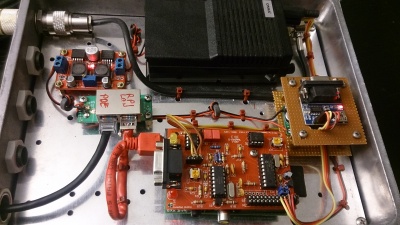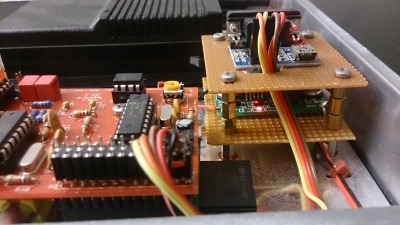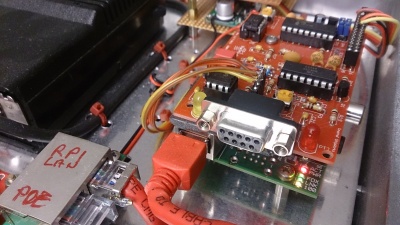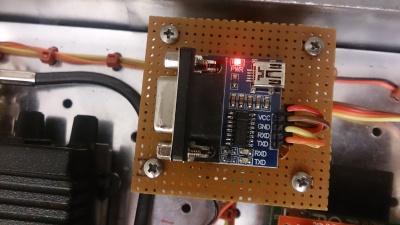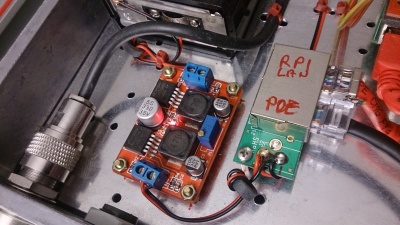APRS with the Raspberry Pi and the TNC-X board: Unterschied zwischen den Versionen
Aus DL8RDS Wiki
Dl8rds (Diskussion | Beiträge) (→The Radio used) |
Dl8rds (Diskussion | Beiträge) (→Configuration) |
||
| Zeile 28: | Zeile 28: | ||
Here's the APRX config: | Here's the APRX config: | ||
| − | < | + | <tt> |
mycall DB0HSR-1 | mycall DB0HSR-1 | ||
myloc lat 4859.93N lon 01205.59E | myloc lat 4859.93N lon 01205.59E | ||
| Zeile 50: | Zeile 50: | ||
beacon symbol "I&" $myloc comment "Tx-iGate Raspberry/TNC-X/APRX" | beacon symbol "I&" $myloc comment "Tx-iGate Raspberry/TNC-X/APRX" | ||
</beacon> | </beacon> | ||
| − | </ | + | </tt> |
== Images == | == Images == | ||
Version vom 27. Dezember 2015, 18:53 Uhr
Inhaltsverzeichnis
1 Motivation
After my first series of experiments with APRS and Ardino, but also with APRS and OpenWRT I am now trying out something else:
Using a Raspberry Pi as a APRS gateway. In this case I intend to do it bidirectional.
2 The TNC-X board
- http://tnc-x.com/
- Details on the version for the RPi: http://tnc-x.com/TNCPi.htm
- Schematic Diagram // TNC - Pi Assembly Instructions & Operating Tips : http://tnc-x.com/TNCPi.pdf
- Documentation: http://tnc-x.com/documentation.htm
3 The Radio used
- I am using a IC2E clone.
- Here is the manual: http://www.radiomanual.info/schemi/IC2_user.pdf
- Here is some more insight on the cable type, when connecting a regular TNC (Cable Type 1): http://www.symek.com/d/afskkabel.html
4 Configuration
- Note that it is really important to set jumpers Nr. 3 and Nr. 4. Otherwise you won'r receive anything and you will not be able to transmit either.
- I was downloading the following APRX version:
wget http://ham.zmailer.org/oh2mqk/aprx/aprx_2.08.593-1_armhf.deb
Here's the APRX config:
mycall DB0HSR-1 myloc lat 4859.93N lon 01205.59E <aprsis> passcode 12345 server rotate.aprs2.net </aprsis> <logging> pidfile /var/run/aprx.pid rflog /var/log/aprx/aprx-rf.log aprxlog /var/log/aprx/aprx.log </logging> <interface>
serial-device /dev/ttyAMA0 19200 8n1 KISS callsign $mycall # callsign defaults to $mycall tx-ok false # transmitter enable defaults to false #telem-to-is true # set to 'false' to disable
</interface> <beacon> beaconmode both beacon symbol "I&" $myloc comment "Tx-iGate Raspberry/TNC-X/APRX" </beacon>
